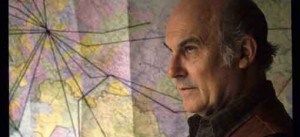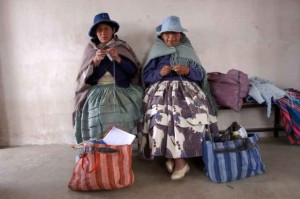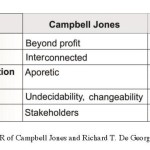Chicago – The National Public Housing Museum is Now Virtual
 The National Public Housing Museum and the Center for the Study of Housing and Society promotes and fosters the deep cultural understanding through artifacts, photos, archival documents, social history, public policy, and other material objects spanning seven decades. It is the first institution dedicated to interpreting the experience of public and social housing and the illumination of resilience of poor and working class families of every race and ethnicity. The Museum is slated for a phased opening beginning in 2013.
The National Public Housing Museum and the Center for the Study of Housing and Society promotes and fosters the deep cultural understanding through artifacts, photos, archival documents, social history, public policy, and other material objects spanning seven decades. It is the first institution dedicated to interpreting the experience of public and social housing and the illumination of resilience of poor and working class families of every race and ethnicity. The Museum is slated for a phased opening beginning in 2013.
http://www.publichousingmuseum.org/
Elias Masilela – Affordable Housing In South Africa
www.property24.com. Oct, 1, 2012
Section 26 of Chapter 2 of the Constitution enshrines a citizen’s right to adequate housing.
According to the UN International Covenant on Economic, Social and Cultural Rights, in relation to adequate housing, the article reads: “the right to housing should not be interpreted in a narrow or restrictive sense which equates it with, for example, the shelter provided by merely having a roof over one’s head or views shelter exclusively as a commodity. Rather it should be seen as the right to live somewhere in security, peace and dignity.”
The Government in an effort to realise this right for all South Africans has built over 3 million subsidised housing units since 1994.
Not only is this a constitutional requirement, it is just simple human dignity.
However, due to the massive growing demands, on the one hand and decades of degradation of housing conditions, on the other hand, the backlog remains difficult to eradicate.
Current estimates of the backlog stand at about 2.1 to 2.5 million units.
As at September 2011, it was estimated that approximately 12 million people were still without adequate housing.
Though consistent and reliable statistics on housing are somewhat patchy, according to the 2009 General Household Survey, 12.8 percent of South African households lived in a RDP or State-subsidised dwelling and 13.5 percent of households have at least one member of the household on a demand database or waiting list for State subsidised housing.
International human rights law recognises principles on basic housing.
According to the UN International Covenant on Economic, Social and Cultural Rights, in relation to adequate housing, the article reads: “the right to housing should not be interpreted in a narrow or restrictive sense which equates it with, for example, the shelter provided by merely having a roof over one’s head or views shelter exclusively as a commodity. Rather it should be seen as the right to live somewhere in security, peace and dignity.”
The Department of Human Settlements has recognised that the backlog in South Africa is not being reduced fast enough and has committed to increasing the rate of delivery with a view to wiping out the backlog by 2030.
At current levels, over R16 billion is earmarked by Government for housing each year.
But still this is not enough and has led Minister Sexwale to say that “We need all hands on deck to sort this problem out and to create a better South Africa for all.”
Read more: http://www.property24.com/affordable-housing-in-south-africa
Elias Masilela is the chief executive officer of the Public Investment Corporation.
Patty Russell – “To Build or Not to Build” – That is the Question
Forbes India, October,16, 2012 – Blog. Here’s a dilemma: You are the owner of a construction company and to expand your market, you need to go into neighborhoods where clients can’t pay the typical construction costs; where there is a dearth of skilled labour and where it is nearly impossible to transport the materials typically associated with your conventional construction methods. You ask yourself: Why make the effort – is the ‘juice worth the squeeze?’
This was the situation faced by Moladi, a South African family-owned business. Sure, there was a demand for new construction – after all, affordable housing in low-income areas can provide a pivotal asset and source of stability that can pull a family out of poverty. In fact, many families were trying to build houses on their own, leading to sub-standard construction and often dangerous living conditions.
Moladi, however, was ready to rise to the challenge. They put a lot of ‘skin in the game’ from a technological innovation perspective, and in the process designed a new construction material to meet the constraints of the target market – a removable, reusable, recyclable, and lightweight plastic formwork mould, which when filled with aerated mortar, could form the wall structure of a house in as early as one day. Better yet, each set of Moladi formwork panels could be reused 50 times, without electricity, and by unskilled labourers.
Read more: Patty Russell -To Build or Not to Build
From The Web – Kapuscinski Development Lectures
Ryszard Kapuscinski (1932-2007) was a Polish journalist and writer who covered developing countries. Kapuscinski, whose books were translated into many languages, was often named the “Third World Chronicler” or the “Voice of the Poor” for his famous reportages and books describing developing countries on all continents. Among other books, he was famous for: “The Emperor” on Ethiopia, “Shah of Shahs” about Iran, “The Shadow of the Sun” about Africa, “Another Day of Life” about Angola, and “Imperium” about the Soviet Union.
Read more: http://kapuscinskilectures.eu/
Dubbele loyaliteit of nieuw heidendom? Onderzoek naar de samensmelting van religies in de Andes
Inleiding
De bloei van de zogenoemde ‘indiaanse of inheemse theologie’ in de afgelopen twintig jaar in Latijns-Amerika is een indicatie voor de diverse veranderingen die er plaats hebben gevonden op politiek, cultureel en kerkelijk gebied. Deze veranderingen zijn niet homogeen van aard en er bestaat al helemaal geen consensus over de interpretatie ervan. Sinds 1990 worden er zogenoemde Continentale Bijeenkomsten over de ‘indiaanse theologie’ georganiseerd, welke mede werden geïnspireerd door de mijlpaal van vijfhonderdste verjaardag sinds de verovering van Abya Yala (het inheemse woord voor het Amerikaanse continent) en de gunstige politieke conjunctuur met betrekking tot de Indianen. In dit artikel probeer ik een interculturele en interreligieuze analyse te geven van deze ontwikkelingen en de gevolgen hiervan voor de religie in de Andes. Read more
Extreme Urbanism 1: Reimagining Mumbai’s Back Bay
A Collaborative Studio and Research Project, Spring 2011
Rahul Mehrotra, Chair of Urban Planning and Design at Harvard Graduate School of Design, provided the leadership for this studio and research project with collaboration from
Harvard Kennedy School of Government, Harvard Business School, Real Estate Academic Initiative at Harvard University and the Loeb Fellowship at the Graduate School of Design.
- Page 2 of 3
- previous page
- 1
- 2
- 3
- next page




